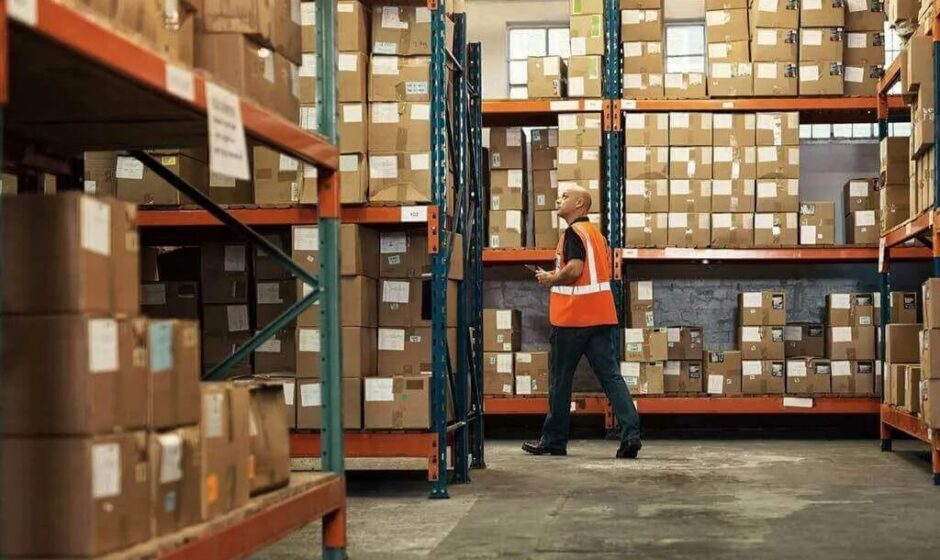Wholesale distributors play a pivotal role in the global supply chain, serving as the critical link between manufacturers and retailers. By providing businesses with goods in bulk at reduced prices, wholesale distributors enable efficient inventory management and support smooth operations for retailers, businesses, and even end customers. This article explores the importance, types, benefits, and challenges of wholesale distributors, as well as key considerations for choosing the right Distributors for your business.
What is a Wholesale Distributor?
A wholesale distributor is a company or individual that purchases goods in large quantities from manufacturers and resells them to retailers, businesses, or other organizations at discounted rates. These distributors typically do not sell directly to the end consumer; instead, they provide products in bulk to businesses that sell to individual customers.
In essence, wholesale distributors are a bridge that simplifies the supply chain. They help manufacturers focus on production while ensuring that retailers have access to the inventory they need.
The Role of Wholesale Distributors in the Supply Chain
Wholesale distributors form a crucial part of the supply chain. Their primary functions include:
- Bulk Purchasing: Distributors purchase products in massive quantities from manufacturers, which allows them to negotiate lower prices.
- Storage and Warehousing: Wholesale distributors handle storage and warehousing to manage inventory, ensuring a steady supply for businesses and retailers.
- Inventory Management: By maintaining large quantities of goods, distributors help retailers avoid shortages and meet customer demand efficiently.
- Logistics and Shipping: Distributors handle the transport and delivery of goods, making the process easier for both manufacturers and retailers.
- Market Reach: They help manufacturers distribute products to a wide range of markets without requiring the manufacturers to manage individual retail relationships.
By performing these roles, wholesale distributors streamline the distribution process, reduce logistical burdens, and improve cost-efficiency for businesses.
Types of Wholesale Distributors
Wholesale distributors can be categorized based on their industry, function, and the types of products they deal in. Here are the main types:
1. General Wholesalers
These distributors offer a wide variety of products across different categories. They are ideal for retailers that need to stock multiple types of goods.
2. Specialty Wholesalers
Specialty wholesalers focus on specific products or niche industries, such as electronics, clothing, automotive parts, or health and beauty products.
3. Regional Wholesalers
These distributors operate in specific geographic regions, catering to local businesses and retailers.
4. Online Wholesalers
With the growth of e-commerce, many wholesalers now operate online platforms. They allow retailers to order products in bulk through digital catalogs and platforms.
5. Cash-and-Carry Wholesalers
These are wholesale stores where businesses can purchase goods directly on-site. Examples include large warehouse stores like Costco or Sam’s Club.
6. Drop Shipping Wholesalers
Drop shipping wholesalers allow retailers to sell products without handling inventory. The distributor ships the product directly to the end customer on behalf of the retailer.
Each type of wholesaler serves specific business needs, allowing companies to choose based on their industry, scale, and preferences.
Benefits of Working with Wholesale Distributors
Partnering with Wholesale Distributors Usa provides several advantages for businesses. Below are the key benefits:
1. Cost Savings
Wholesale distributors offer products at discounted bulk prices, helping businesses reduce procurement costs and increase profit margins.
2. Convenience
Distributors simplify the buying process by offering a variety of goods from multiple manufacturers in one place. This reduces the time and effort required for sourcing.
3. Improved Inventory Management
By purchasing goods in bulk, businesses can maintain a steady inventory and avoid the risk of stockouts or delays.
4. Access to Quality Products
Reputable wholesale distributors work with trusted manufacturers, ensuring that businesses receive high-quality products that meet market standards.
5. Scalability
Wholesale distributors allow businesses to scale their operations without worrying about inventory constraints. Companies can expand product offerings and enter new markets with the support of distributors.
6. Reduced Logistics Costs
Many distributors handle warehousing, packaging, and shipping, reducing logistical burdens and costs for businesses.
Challenges of Wholesale Distribution
While Tire Rack Wholesale distribution provides significant benefits, there are also challenges businesses may face when dealing with distributors:
1. Minimum Order Requirements
Many wholesalers require businesses to purchase a minimum quantity of goods, which may pose challenges for small businesses or startups with limited budgets.
2. Storage Constraints
Bulk purchasing requires adequate storage space. Businesses must plan for warehousing or inventory management to avoid stock overflow.
3. Product Quality Variations
Not all wholesalers guarantee product quality. Businesses need to conduct due diligence to verify the reliability of a distributor.
4. Shipping Delays
Dependence on wholesale distributors for logistics can sometimes result in delays, affecting a business’s ability to meet customer demands.
5. Price Fluctuations
Wholesale prices may vary due to market demand, production costs, or changes in raw materials, which can impact profit margins.
How to Choose the Right Wholesale Distributor
Selecting the right wholesale distributor is critical to the success of your business. Here are the key factors to consider:
1. Product Range and Specialization
Ensure the distributor offers the products you need, especially if you operate in a niche market.
2. Pricing and Payment Terms
Compare prices from multiple distributors and evaluate their payment terms, including discounts, bulk pricing, and payment flexibility.
3. Reliability and Reputation
Research the distributor’s reputation in the industry. Check for reviews, references, and feedback from other businesses.
4. Minimum Order Quantities (MOQ)
Assess whether the distributor’s minimum order requirements align with your business needs.
5. Shipping and Logistics
Evaluate their shipping times, delivery methods, and associated costs. Timely delivery is critical for maintaining your supply chain.
6. Customer Support
Choose a distributor with excellent customer service to address issues such as product defects, delays, or returns.
7. Technology and Platforms
Many modern wholesalers offer online ordering platforms and inventory tracking tools. Choose a distributor that leverages technology for convenience.
Trends in Wholesale Distribution
The wholesale industry is evolving with new trends and innovations. Key trends shaping the future of wholesale distribution include:
1. E-commerce and Online Platforms
Online wholesale platforms like Alibaba, Amazon Business, and Faire allow businesses to access global distributors and simplify procurement.
2. Automation and AI
Automation tools and AI technologies are improving inventory management, logistics, and demand forecasting in wholesale distribution.
3. Sustainability Initiatives
Many distributors are adopting eco-friendly practices, such as sustainable packaging and energy-efficient warehousing.
4. Data-Driven Insights
Wholesale distributors are increasingly leveraging data analytics to optimize pricing, stock management, and supply chain performance.
5. Personalized Services
Some distributors are offering personalized solutions, such as customized packaging or exclusive product lines, to meet specific retailer needs.
Conclusion
Wholesale distributors are the unsung heroes of commerce, enabling manufacturers and retailers to operate efficiently and profitably. They provide cost-effective solutions, simplify inventory management, and support businesses of all sizes in scaling their operations. However, choosing the right distributor requires careful consideration of factors like pricing, reliability, and shipping capabilities.
As trends like e-commerce, automation, and sustainability continue to shape the industry, Wholesale Extracts Flavorfrenzy distributors are adapting to meet the needs of modern businesses. For any business owner, partnering with a trusted and reputable wholesale distributor can unlock significant opportunities for growth, profitability, and long-term success.
By understanding the role, benefits, and challenges of wholesale distribution, businesses can make informed decisions that streamline their supply chain and support their goals in an increasingly competitive marketplace.




